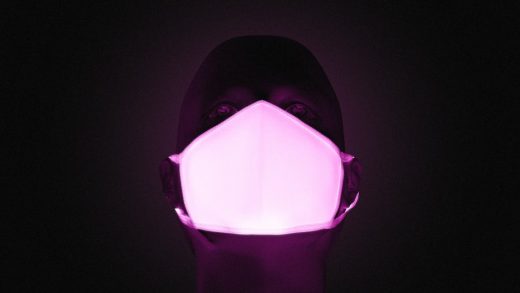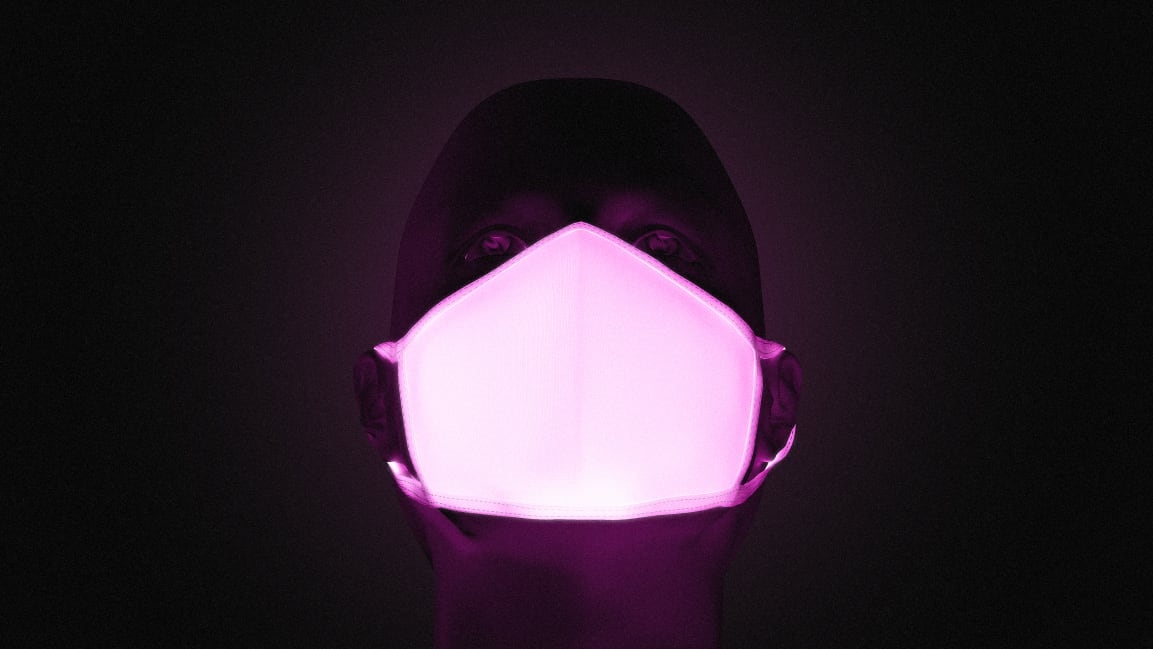This mask glows if you have COVID
Many early Omicron variant cases are asymptomatic, and as with earlier coronavirus variants, that means there’s a risk that people who are infected won’t realize it, and could unwittingly infect someone else who might get much sicker or even die. It still isn’t clear how dangerous the new variant will be. But more testing could help slow down the spread, and right now, people typically only get tested when they start to notice symptoms.
While more testing centers and access to free or cheap rapid tests would certainly help, in Japan, scientists are working on a COVID-detecting mask that works as someone wears it—finding infections that might otherwise have been missed. An early prototype of the mask uses a special filter that can be removed and sprayed with COVID antibodies extracted from ostrich eggs. (Ostriches, which have super-charged immune systems, can help make low-cost antibodies without harming the birds.) When someone shines a black light on the filter, it will glow if the person who has been wearing the mask is infected.
The researchers are now working on a version of the mask that can glow without the help of a black light. It’s not the only mask in development that aims to double as a test kit; researchers from MIT and Harvard also designed sensors that can be embedded in masks and detect COVID. In a study, they found that the design worked as well as the gold standard tests used in labs.
By avoiding the perceived discomfort of a basic COVID tests—some people may be reluctant to stick a swab in their nose, though current at-home tests aren’t painful—it might make people more likely to test themselves. And if you’re wearing a mask everyday, an everyday test could become a habit. The lead researcher in the Japanese team, Yasuhiro Tsukamoto, discovered that he was infected himself after wearing one of the experimental masks, and later confirmed the result with a PCR test.
The MIT and Harvard team wants to bring its mask to market, as do the researchers in Japan. “We can mass-produce antibodies from ostriches at a low cost,” Tsukamoto told Kyodo News. “In the future, I want to make this into an easy testing kit that anyone can use.”
(17)



